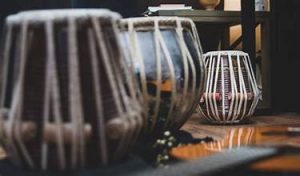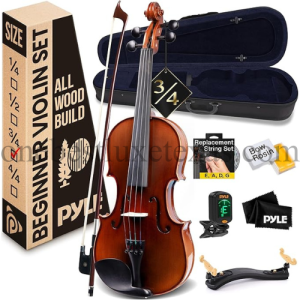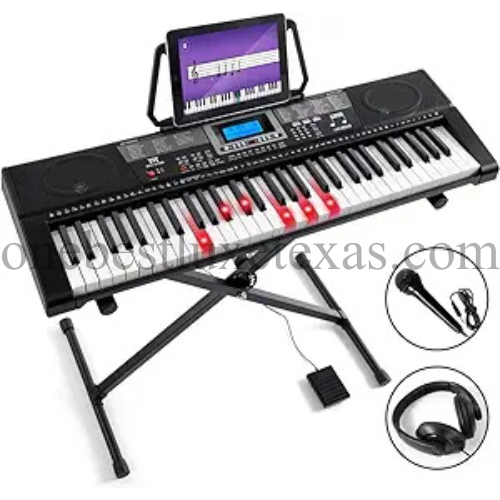Uncategorized
Top 5 Musical Instruments for Classical Pianists
Top 5 Musical Instruments for Classical Pianists
Classical pianists are known for their technical precision, musical expression, and deep understanding of music theory. While the piano is their primary instrument, many pianists explore other instruments to broaden their musical skills, enhance their performances, and gain a deeper understanding of orchestral and chamber music. Whether you’re a budding classical pianist or an experienced player, learning additional instruments can help you refine your musicality and versatility.
In this article, we’ll explore the top 5 musical instruments that classical pianists can benefit from learning. These instruments complement the piano beautifully and provide opportunities for enriching your overall musical experience.
1. Violin
Why It’s Great for Classical Pianists:
The violin is one of the most iconic instruments in classical music, and learning it can be immensely beneficial for a classical pianist. Both the violin and the piano are key instruments in orchestral and chamber music settings, and the violin’s expressive range and ability to play both melody and harmony allow pianists to better understand their role in a musical ensemble.
Benefits for Classical Pianists:
- Improved ear training: The violin’s expressive, pitch-dependent nature helps pianists develop a better ear for intervals and intonation.
- Understanding orchestral roles: Pianists who understand the violin’s contribution to orchestral music can enhance their performances in piano concertos and chamber music.
- Improved music reading: Violinists often read music in different clefs (treble clef for violin vs. grand staff for piano), which can expand a pianist’s music-reading skills.
Learning Tips:
- Focus on mastering bow control and tone production, as these elements will deepen your musical expression.
- Pay attention to the violin’s phrasing and vibrato, as it will help you interpret your piano pieces with more fluidity and emotion.

2. Cello
Why It’s Great for Classical Pianists:
The cello is another string instrument that pairs beautifully with the piano, especially in chamber music and concertos. The cello’s rich, deep sound complements the piano’s range, and the two instruments often work together in both orchestral and smaller ensemble settings.
Benefits for Classical Pianists:
- Understanding the bass range: The cello’s lower register gives pianists a deeper appreciation for the bass notes in their own playing.
- Enhanced musical interpretation: Playing the cello encourages pianists to experiment with legato phrasing and expressive vibrato, enriching their own piano performances.
- Deeper knowledge of chamber music: Many famous works for piano and strings feature the cello. Playing it gives pianists a deeper insight into these pieces, aiding interpretation.
Learning Tips:
- Focus on developing smooth bowing technique to create a consistent, resonant sound.
- Practice playing in both the upper and lower registers to understand how the cello’s range complements the piano’s.
3. Clarinet
Why It’s Great for Classical Pianists:
The clarinet is a woodwind instrument with a warm, smooth sound that blends beautifully with piano accompaniment. It is often featured in orchestral and chamber music, and many famous composers have written beautiful clarinet-piano duets. Learning the clarinet gives pianists a better understanding of wind instruments’ phrasing, articulation, and tone color.
Benefits for Classical Pianists:
- Articulation and phrasing: Clarinet players must master breathing techniques and articulation, which can inspire pianists to refine their own phrasing and pedaling techniques.
- Improved musical expression: Playing a wind instrument teaches the importance of breath control, which helps pianists become more conscious of musical phrasing and dynamics in their own playing.
- Chamber music collaboration: Knowing how to play the clarinet can make you a better ensemble player when performing with wind instrumentalists in a chamber music setting.
Learning Tips:
- Work on your embouchure and breath support to create a smooth, controlled sound.
- Focus on developing your ability to read treble clef music, which can enhance your piano sight-reading skills.
4. Flute
Why It’s Great for Classical Pianists:
The flute is a highly expressive wind instrument that adds a light, airy quality to chamber music and orchestral performances. Many classical pianists perform with flutists, and learning the flute can enhance a pianist’s understanding of woodwind phrasing, tone, and dynamics.
Benefits for Classical Pianists:
- Understanding phrasing and dynamics: The flute’s ability to sustain long phrases and vary its dynamics helps pianists refine their control over phrasing and expressiveness.
- Complementary sound: The flute’s bright, sparkling tone is often paired with the piano in classical duets, and learning it helps pianists interpret pieces written for both instruments more accurately.
- Expanded musical vocabulary: Flute music often includes ornamentation, which can inspire pianists to add more expressive elements to their own performances.
Learning Tips:
- Practice breathing exercises to help with tone production and sustain smooth phrasing.
- Focus on understanding the flute’s articulation, including staccato and legato, and apply these to your piano playing.
5. Voice (Singing)
Why It’s Great for Classical Pianists:
The voice is often considered the most natural instrument, and learning to sing can deeply enhance a classical pianist’s musical abilities. Many classical pieces, particularly opera, lieder, and choral music, involve both the voice and the piano. As a pianist, being able to understand vocal technique and the expressive possibilities of the voice can improve your musicality and accompaniment skills.
Benefits for Classical Pianists:
- Improved musical expression: Singing requires full-body awareness, breath control, and dynamic variation—all of which can greatly enhance a pianist’s own expressive range.
- Better accompaniment skills: Understanding how the voice works gives pianists the ability to accompany singers with greater sensitivity and awareness.
- Deeper understanding of musical phrasing: Vocalists often use natural phrasing and inflection that can inspire pianists to play with more emotional depth and phrasing.
Learning Tips:
- Focus on breath control and proper vocal technique to avoid strain and improve sound quality.
- Practice sight-singing to develop your ear and improve your ability to accompany vocalists effectively.

Conclusion
As a classical pianist, learning additional instruments can be a deeply enriching experience. The violin, cello, clarinet, flute, and voice are all excellent choices for enhancing your musicality and understanding of different instrumental techniques. Each instrument offers unique insights into phrasing, dynamics, and tonal qualities, allowing pianists to deepen their interpretation of both solo and collaborative works.
At Onebestluxetexas, we offer a wide range of instruments and accessories to help classical musicians expand their musical horizons. Whether you’re a pianist looking to branch out or a multi-instrumentalist eager to learn new techniques, our store has the tools you need to enhance your musical journey. Explore our collection and take your music to new heights!

